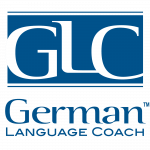
The possessive article
Possessive articles indicate to whom or what something belongs. For example: Is this your pen? No, this is my pen.
The conjunctions
A conjunction joins words or groups of words. Some conjunctions in German are und (and), oder (or), aber (but), weil (because), and dass (that).
The infinitive
An infinitive is the base form of a verb, which has not been changed to show tense or given any endings. In German, an infinitive always ends in -en or -n and is the form of the verb found in the dictionary (e.g. machen, gehen).
Conjugation
Conjugation refers to a set of endings (and sometimes vowel changes) for verbs that help to mark person and tense. For example, “to be” = I am, you are; sein = ich bin, du bist, etc.
Declension
Declension refers to the change of article, adjective or noun depending on case. For example: Der nette Mann kauft der jungen Frau einen schönen Blumenstrauß.
Cases
Cases indicate the function of a noun in a sentence. In German, the subject of a sentence is in the Nominative case, the direct object in the accusative case and the indirect object in the Dative case. For example: Der nette Mann kauft der jungen Frau einen schönen Blumenstrauß.

One thought on “German grammar terminology (part 3)”